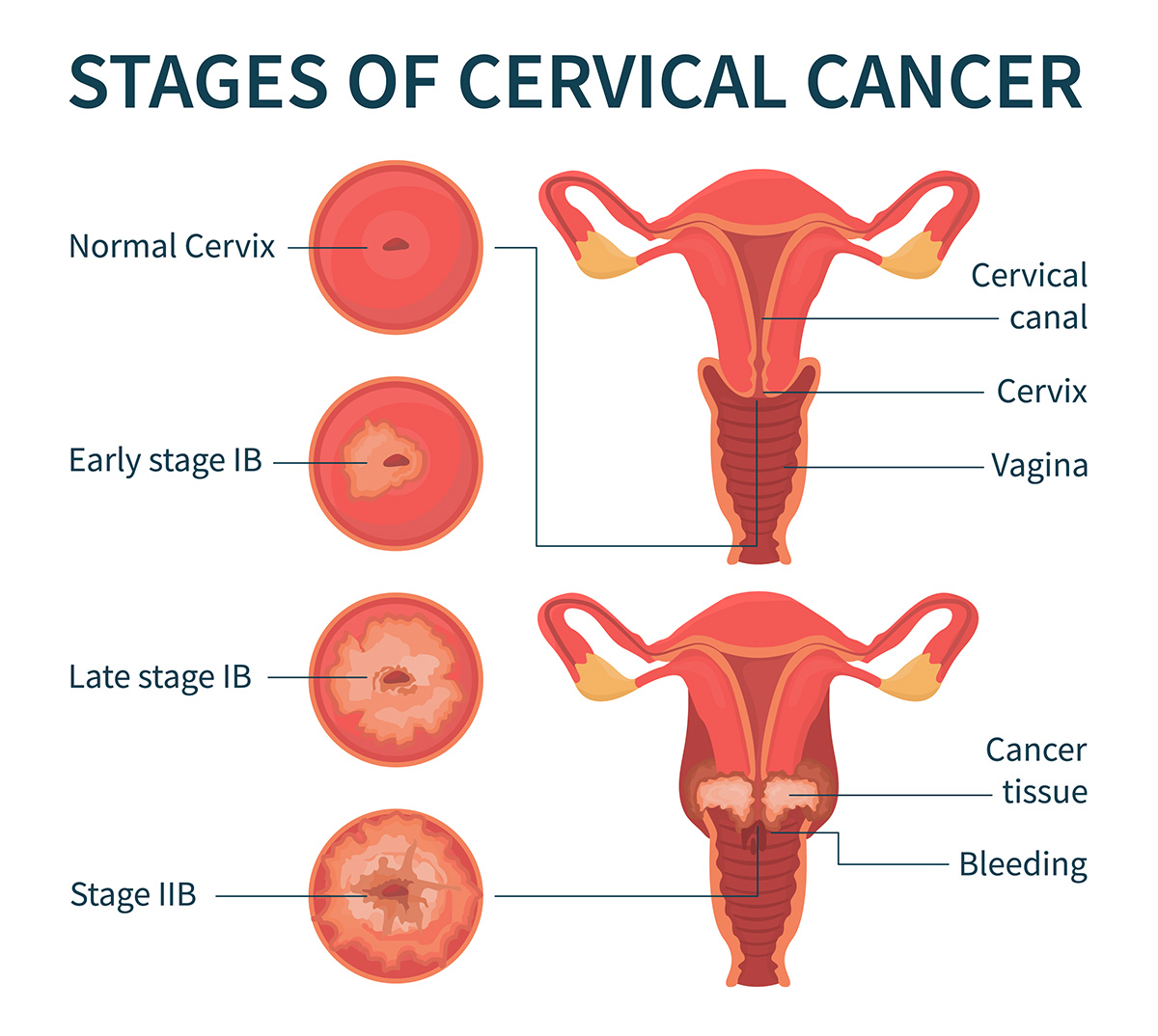We provide an advanced healthcare facility that offers sophisticated & patient-centric care. Dr. Surender Dabas has also developed a novel technique for performing robotic surgery of the neck which allows for better outcomes. He has been actively involved in teaching Robotic surgery to medical students across India and abroad. So consult, the best cervical cancer surgeon in Faridabad.
Overview of Uterine Cancer
Cervix is the lower most part of the uterus which is visualised during a routine gynecological examination. Cervical cancer develops when there is an uncontrolled growth of cells lining the cervix. Cancer of the cervix is the second most common cancer among Indian females after breast cancer.
Ninety-nine percent of cases of cervical cancer are caused by high risk strains of Human Papilloma Virus (HPV) which is acquired via sexual contact. Majority (80%) of the females clear the virus on their own within a time frame of 2 years but in remaining 20% females, the virus remains latent in the cervical cells causing a persistent infection which results in precancerous changes progressing to cervical cancer.
The time period between HPV infection to development of precancerous lesions finally leading to cervical cancer can vary between 10-30 years. This natural history of progression of the disease provides us with a long window of opportunity to perform screening tests to identify HPV infection and treat precancerous lesions. Thus screening tests for cervical cancer help to identify and treat the lesions in cervix prior to development of cancer making cervical cancer a preventable cancer
